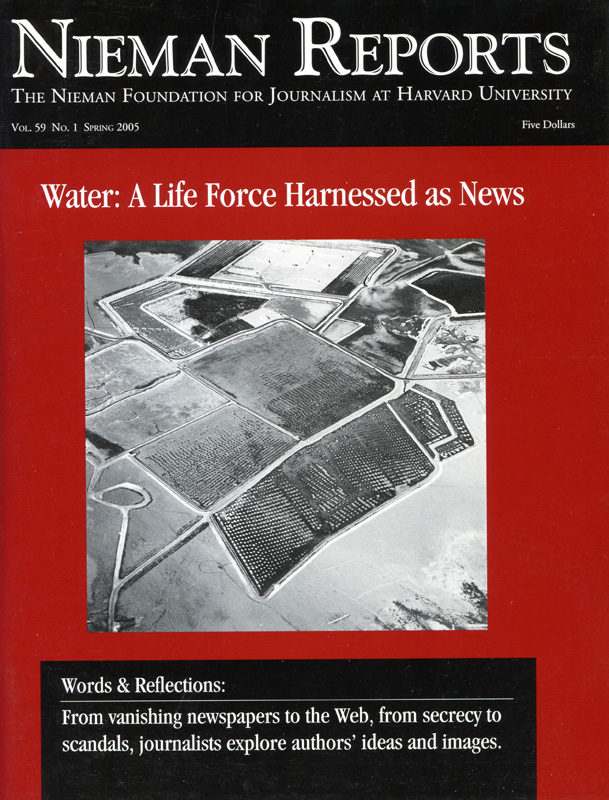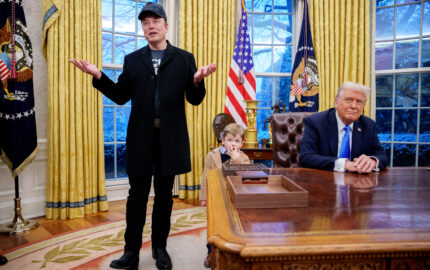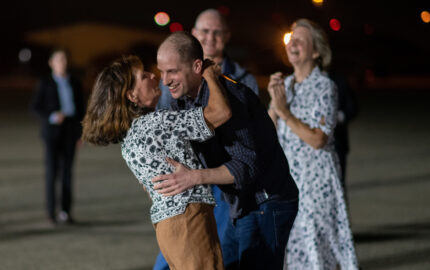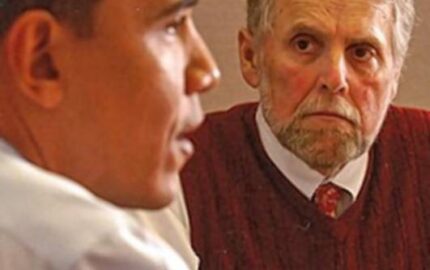
Water: A Life Force Harnessed as News
Water is the essence of life, and its cleanliness, availability, and our use and abuse of it are stories meriting reporters’ and editors’ attention. Yet as Stuart Leavenworth, who covered water issues for The Sacramento Bee and describes the wide array of issues he took on, reports: “To my chagrin, I had the beat largely to myself for four years. Across the country, papers have tackled problems of water pollution and degradation, but have overlooked fundamental issues of supply—and sustainability. This is curious.”
The Nieman Foundation was the subject of attention in the press recently. A story in The Boston Globe gave voice to alumni expressing “discontent” about changes that have taken place in the program. The published quotes yearned for an earlier time when the Nieman program was remembered as being exclusively focused on the journalists selected to be Nieman Fellows.
The main concern seemed to be that democratizing the program and, from time to time, inviting other journalists to share Harvard’s riches, would subtract from the fellowship experience and move the program too far from its roots. Other alumni who were quoted raised questions about the investment of four million dollars in the renovation of Lippmann House and the construction of a new seminar room that improves the fellows’ learning environment and enables the foundation to be more inclusive. One Nieman, after returning for a visit at year’s end, circulated a memo that treasured memories of a “moldy” Lippmann House with its folding chairs and mismatched cabinets.
The Globe’s story was posted on the Internet and even reprinted in the International Herald Tribune. It drew a heartening response of e-mails expressing approval of the new direction, seeing journalism conferences and the narrative writing program as important additions, and wondering about Nieman Fellows past whose apparent sense of elitism would inspire resistance to change.
Change is troublesome to many who might prefer things as they were. Each Nieman Fellow remembers his or her experience as a special time, a year of discovery and reflection. In spite of this deep affection for that time past and the desire that it remain the same for today’s fellows, the institution has changed consistently since its founding. In his 25 years as Curator, Louis Lyons eventually opened the program to women and international journalists. Dwight Sargent was the first in a succession of Curators to raise money. He and each of his successors recognized that additional resources were needed to keep the program vital and competitive. Jim Thomson increased the number of women and sought more journalists from developing countries. He also established a program of instruction in creative writing. Howard Simons continued to expand the number of international journalists in the program. Bill Kovach added the Watchdog Journalism Program and raised the foundation’s profile in support of high standards of journalism.
During its 67 years, and under the influence of seven Curators, the core Nieman mission has remained unchanged: providing an educational experience at Harvard for journalists of accomplishment and promise who then return to journalism with the expectation that their work will contribute to elevating the standards of our craft. The addition of international journalists, women and minority fellows has substantially enriched the Nieman experience. Instruction in the creative and narrative forms has given the fellows an option to work on their writing during the Nieman year. Seminars, workshops and conferences have enabled them to meet other journalists in discussions about the complex issues in journalism. Feedback from recent classes about these opportunities is clearly positive.
The Nieman Foundation is a living institution, its values nourished by the excellence of the fellows in their years after Harvard, as well as by the strength of new generations of fellows. While its ideals are deeply rooted in the core mission, the foundation could never afford to stand still. It is part of a university that is changing, becoming more global. In times of significant change in the news world, the Nieman program has discovered appropriate ways to share the educational values of Harvard and the purpose of the Nieman Foundation with the larger world of journalism.
We have elected to use the foundation’s resources and the convening power of Harvard for weekend workshops on subjects journalists and their news organizations struggle with: public perceptions that our standards are declining, that our journalistic values are being overtaken by commercial priorities, that our credibility suffers from recent scandals, that our reporting is not to be trusted, that as a craft we are slow to adapt to new technologies, and that there is a growing threat to press freedoms in the United States and globally. The Nieman Foundation recognizes a shared mission with journalists and news organizations in addressing these fundamental challenges. While we have a limited ability to do so, it is our obligation to bring Nieman Fellows together with practitioners and scholars four or five times a year to discuss journalistic practices and public perceptions about the role of journalism.
This vision continues the spirit of change that each Curator has brought to the program. It is a spirit expressed at a reunion of Nieman Fellows in 1995 by John Kenneth Galbraith, emeritus professor of economics and a friend to generations of fellows: “There is nothing about this program that can be considered finished. Nothing that can be considered normal. To the Niemans, there is no stationary state.”
The main concern seemed to be that democratizing the program and, from time to time, inviting other journalists to share Harvard’s riches, would subtract from the fellowship experience and move the program too far from its roots. Other alumni who were quoted raised questions about the investment of four million dollars in the renovation of Lippmann House and the construction of a new seminar room that improves the fellows’ learning environment and enables the foundation to be more inclusive. One Nieman, after returning for a visit at year’s end, circulated a memo that treasured memories of a “moldy” Lippmann House with its folding chairs and mismatched cabinets.
The Globe’s story was posted on the Internet and even reprinted in the International Herald Tribune. It drew a heartening response of e-mails expressing approval of the new direction, seeing journalism conferences and the narrative writing program as important additions, and wondering about Nieman Fellows past whose apparent sense of elitism would inspire resistance to change.
Change is troublesome to many who might prefer things as they were. Each Nieman Fellow remembers his or her experience as a special time, a year of discovery and reflection. In spite of this deep affection for that time past and the desire that it remain the same for today’s fellows, the institution has changed consistently since its founding. In his 25 years as Curator, Louis Lyons eventually opened the program to women and international journalists. Dwight Sargent was the first in a succession of Curators to raise money. He and each of his successors recognized that additional resources were needed to keep the program vital and competitive. Jim Thomson increased the number of women and sought more journalists from developing countries. He also established a program of instruction in creative writing. Howard Simons continued to expand the number of international journalists in the program. Bill Kovach added the Watchdog Journalism Program and raised the foundation’s profile in support of high standards of journalism.
During its 67 years, and under the influence of seven Curators, the core Nieman mission has remained unchanged: providing an educational experience at Harvard for journalists of accomplishment and promise who then return to journalism with the expectation that their work will contribute to elevating the standards of our craft. The addition of international journalists, women and minority fellows has substantially enriched the Nieman experience. Instruction in the creative and narrative forms has given the fellows an option to work on their writing during the Nieman year. Seminars, workshops and conferences have enabled them to meet other journalists in discussions about the complex issues in journalism. Feedback from recent classes about these opportunities is clearly positive.
The Nieman Foundation is a living institution, its values nourished by the excellence of the fellows in their years after Harvard, as well as by the strength of new generations of fellows. While its ideals are deeply rooted in the core mission, the foundation could never afford to stand still. It is part of a university that is changing, becoming more global. In times of significant change in the news world, the Nieman program has discovered appropriate ways to share the educational values of Harvard and the purpose of the Nieman Foundation with the larger world of journalism.
We have elected to use the foundation’s resources and the convening power of Harvard for weekend workshops on subjects journalists and their news organizations struggle with: public perceptions that our standards are declining, that our journalistic values are being overtaken by commercial priorities, that our credibility suffers from recent scandals, that our reporting is not to be trusted, that as a craft we are slow to adapt to new technologies, and that there is a growing threat to press freedoms in the United States and globally. The Nieman Foundation recognizes a shared mission with journalists and news organizations in addressing these fundamental challenges. While we have a limited ability to do so, it is our obligation to bring Nieman Fellows together with practitioners and scholars four or five times a year to discuss journalistic practices and public perceptions about the role of journalism.
This vision continues the spirit of change that each Curator has brought to the program. It is a spirit expressed at a reunion of Nieman Fellows in 1995 by John Kenneth Galbraith, emeritus professor of economics and a friend to generations of fellows: “There is nothing about this program that can be considered finished. Nothing that can be considered normal. To the Niemans, there is no stationary state.”


